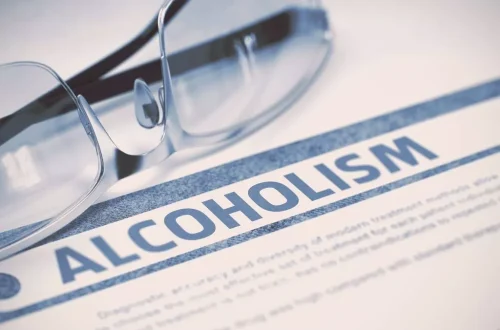
This article examines the little-known, three-way relationship that exists among alcohol use and abuse, glucocorticoid secretion, and the aging process (see figure 1, p. 273). In particular, the article considers evidence that the glucocorticoid-based stress response system, as regulated by the hypothalamic-pituitary-adrenal (HPA) axis, does alcohol make you look older plays a key role in the physiological and psychological responses to alcohol. By highlighting the overlap between these relationships, this article may spur further research on this important and complex topic. But, as people age, binge drinking is thought to pose even higher risks for morbidity, including accidents, and mortality.

Age-Related Impaired Adaptation of the HPA Axis to Chronic Alcohol Exposure
Thus, although glucocorticoid production and secretion occur in small glands located above the kidneys, these processes are ultimately controlled by the activity of various brain regions. That said, rewinding to the part about cutting back on drinking, it’s worth noting that alcohol speeds up the aging process because regular drinking can result in a loss of skin elasticity, which may mean an increase in fine lines and wrinkles. “Alcohol also decreases cellular efficiency throughout the entire body, making our vital organs function less efficiently, leading to chronic disease. Plus, it’s a depressant affecting behavior and making it difficult to think clearly and make executive functions,” Dr. Schwartz explains. “As we age, our bodies metabolize alcohol less efficiently and blood alcohol levels remain high in people who are less active and ill-prepared to detoxify its untoward side-effects,” says Dr. Schwartz. If you were thinking it’s enough to swap out dessert for a cocktail to account for the added calories, think again.
Health & Wellness Tips
To evaluate the relationship between drinking patterns and health in older adults, Holahan and colleagues (2012) studied 446 people with a mean age of 62 at the beginning of the study. Study participants were “moderate drinkers” based on NIAAA’s guidelines of drinking at least half a drink per day but no more than half a drink per day for women and two drinks per day for men (NIAAA 2007). Some also were moderate drinkers who had periods of episodic heavy drinking or binge drinking defined as drinking four or more drinks for women and five or more drinks for men on the occasion of the largest amount of drinking. Overall, the study found that moderate drinkers who engaged in episodic heavy drinking were more than twice as likely to die within 20 years compared with regular moderate drinkers. However, clinicians may need brief skills training to be able to assess effectively and more rapidly the quantity and frequency of alcohol use as well as any comorbid physical and mental health issues (e.g., depression and suicide risk) in this age group.
Here’s What Happens to Your Alcohol Tolerance As You Age
- They studied beer, wine, liquor and “total alcohol” (sum of the three alcoholic beverages consumed by an individual).
- Crucially, this is the opposing effect compared to malnutrition caused by chronic abuse of alcohol.
- Mixing alcohol with opioids or benzodiazepines like diazepam (Valium) is one potentially deadly combination.
- As your cells get older, they lose their ability to regenerate and repair themselves.
- Some neurons, however, require the presence of only low glucocorticoid levels for survival (McEwen 1999) and may be damaged by high glucocorticoid levels.
It’s always important to be mindful and honest with yourself about how many glasses you are consuming and how often. With that in mind, like most doctors, Dr. Schwartz would suggest working on cutting out alcohol versus working on getting your body to better tolerate it. Thinking about the price of getting sick can certainly help meet Dr. Schwartz’s recommendation. This can be dangerous for people who already have slower reaction times and poor balance without alcohol. So if you’re drinking more — or even if you’re just drinking the same amount — you can start having problems, says Lawrence Ferber, director of Behavioral Health Central Intake Services for Catholic Health Services of Long Island.

Dr. Elizabeth Landsverk, a geriatrician and dementia expert, tells HuffPost that the way alcohol impacts the body will vary based on your age. If your 2024 goals include plans to drink in moderation, here’s what she wants you to know. When we can stick to moderate drinking, however, we usually feel pretty good about ourselves. 5The terms “tolerance” and “habituation” both refer to the same phenomenon—the diminished response to a certain stimulus. However, by convention, the term “tolerance” is used for a diminishing response to drugs, whereas the term “habituation” generally is used with nondrug stimuli, such as stress or repeated sounds. In general, young adult rats are 4 to 5 months old, whereas aged, or “older,” rats are 22 to 24 months old.
Chronic HPA Activation, Chronic Alcohol Exposure, and Premature or Exaggerated Aging
- Researchers have not yet determined the reason for impaired tolerance development in aged rats.
- 2The inability to normally metabolize alcohol can result in unpleasant symptoms in response to alcohol consumption, including visible flushing of the face, nausea, and vomiting.
- Studies in which rats were repeatedly exposed to the same stressful event also have found age-related changes in HPA axis function.
- The Alcohol Use Disorders Identification Test (AUDIT) is a useful validated brief screening instrument for excessive drinking developed by the World Health Organization (WHO) (Barry and Fleming 1993; Fiellin et al. 2000; Schmidt et al. 1995).
- On these grounds, the current review addresses general effects of negative brain changes and cognitive decline in the aging brain and the interplay with chronic alcohol consumption.
- As the population ages, demand for healthcare will increase, and rising rates of alcohol use in older adults may create additional challenges to an already burdened healthcare system.
In that study, both groups of animals displayed equivalent increases in corticosterone levels in response to alcohol on the first day of treatment, suggesting that in rats, no age-related difference exists in the initial response of the HPA axis to alcohol. In contrast, the ability of the HPA axis to adapt to repeated alcohol exposure differed greatly between the aged and the younger rats. Whereas young rats developed extensive tolerance in their corticosterone response to alcohol (i.e., showed smaller alcohol-induced increases in corticosterone levels) after 7 days of alcohol exposure, aged rats exhibited substantially less tolerance development. As a result, on days 7 and 14, the corticosterone levels in response to alcohol were significantly greater in the aged rats than in the younger ones. Such an age-related impairment in tolerance development to alcohol also has been observed in rats that had to perform a previously learned task while under the influence of alcohol (Mayfield et al. 1992). Drinking too much alcohol can have negative physical and mental health consequences, including heart and liver problems, memory issues, mood disorders, as well as an increased risk of cancer and a weakened immune system.

- Rather, many can benefit from screening and brief interventions regarding their drinking (Kuerbis et al. 2015; Pilowsky and Wu 2012).
- Inheritance of this defective gene, which is especially prevalent among people of Asian descent, disallows the body to metabolize alcohol normally.2 People with the defective gene show significantly elevated blood cortisol levels, even at BACs below 0.1 percent (Wall et al. 1994).
- Researchers have speculated that corticosterone may increase an individual’s alcohol consumption by enhancing alcohol’s rewarding effects (e.g., feelings of euphoria).
- Moreover, some functional cognitive brain processes improve in aging, for instance vocabulary knowledge (Salthouse, 2010), or are generally preserved, depending on their consolidation over the lifespan (Lövdén et al., 2010).
In addition, however, chronic alcohol abuse appears to produce more subtle—but significant—deficits in cognitive function. These deficits are most evident on tests of relatively complex cognitive function, such as the ability to follow abstract concepts or to adapt quickly to changing conditions (Tivis et al. 1995; Evert and Oscar-Berman 1995). On such tasks, the performance of alcoholics is impaired compared with nonalcoholics of the same age. In fact, chronic alcohol abuse appears to accelerate a person’s cognitive decline by approximately 10 years, because the cognitive performance of alcoholics generally is comparable to that of nonalcoholics who are 10 years older. This age-related discrepancy is apparent even in alcoholics in their thirties (Noonberg et al. 1985). Age-related changes of the body have been observed in essential body functions, particularly in the loco-motor system, in the cardiovascular system and in cognitive functions concerning both brain plasticity and changes in behavior.



